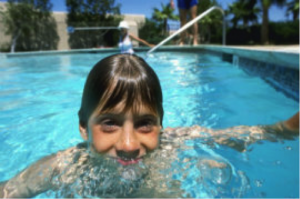
We have suggestions to spur your cogitation and avoid any professional “summer slide.” Plus have some fun along the way.
Here’s a quick preview:
►Get the most out of summer with tips from Vicki Davis.
► Find free online PD including lots of webinars and podcasts to fill the summer with Curtis Chandler.
Books to Savor
Anticipating some deep relaxation? Ready for neural stimulation? If you’re looking for just the right professional read, don’t miss MiddleWeb’s large collection of book reviews – now over 1000.
Want to be a MiddleWeb reviewer yourself? You can select a professional book from our current list and send us your review before summer’s end. Find the details here.
Coaching expert and author of Onward: Cultivating Emotional Resilience in Educators (2018) Elena Aguilar offered summer book suggestions at her Edutopia blog including books to cultivate empathy and hope. In 2014 Aguilar reviewed Stuart Brown’s Play and suggested ways to incorporate play into summer PD. Also at Edutopia, Marissa King and Robin Harris in 2020 wrote For Teachers: Summer Reading During Turbulent Times.
The NYT Learning Network shares a different sort of education summer reading list: 2014’s best sellers for K-16 with a very wide definition of education. You may disagree with some of the authors or want to skip the ones about life on college campuses, but browsing the list will likely spur some additions to your must-read stack.
To travel beyond the world of pedagogy, whether on vacation or on your porch, find lots of super adult fiction and nonfiction reviews at NPR’s Book page (@nprbooks). You can find book reviews by category at Sarah Tantillo‘s Only Good Books blog.
Zora Magazine (at Medium, named for Zora Neale Hurston) has compiled the first-ever comprehensive list “specifically featuring 100 of the finest literary works produced by African American women authors.” An amazing resource and a good reference for summer reading.
Looking at recent and to-be-published books, the New York Times offers fiction and nonfiction options in a ‘if you liked/watch for’ format in What Should I Read This Summer? For example if you liked Louise Erdrich’s Love Medicine about Native American families, you may want to read Morgan Talty’s Night of the Living Rex: Stories. if you would like more choices, visit the Times’ 88 Books to Bring Your Summer Alive, all categorized by genre or topic. With a Times subscription you can take The Time Machine back to 1928 for a look at attitudes toward summer reading 93 years ago.
Over at the Washington Post the book editors share their picks for summer reading, a mix of recent nonfiction and fiction. The Post also made the case for the special need for escaping into books and offers suggestions.
For a trip from Atlanta to communities in surrounding states, guided by poets, novelists, essayists and more, visit Alison Law’s 2022 Summer Reading Roundup from The Bitter Southerner. And find lots more to read right on the BS site.
Go Beyond the Book
The next time you are online and missing your school year chats with middle graders, drop by This American Life for their 2011 audio hour on students’ perceptions of middle school life.
In recent years TED-Ed has posted hundreds of video lessons featuring collaborations between teachers and animators — and tens of thousands of ‘flipped’ TED (and other videos) by teachers. You can soak up ideas (be sure to take the TED-Ed Tour to see how it works) and learn how to ‘flip’ the videos into your own lessons this fall. And think about lessons you could submit for the TED-Ed animation treatment. Here’s what happens to heroes in a lesson from educator Matthew Winkler and a TED-Ed team:
And while we’re talking video: remember the multitudinous videos and blogs from the Teaching Channel just a click away.
Ready to dive into tech-augmented learning?
Summer may be a great time to review your use of web tools and connected learning sites and plan for the future. Richard Byrne at Free Tech for Teachers always has great ed tech ideas to share. And Cool Cat teacher Vicki Davis includes tech among her 10 Ways to Rejuvenate and Learn This Summer.
Take a Course or Three
For learning at home, tune in to BAM! Radio to catch helpful discussions from educators, including the Classroom Q&A series hosted by Larry Ferlazzo and featuring many MiddleWeb contributors.
You can find quick doses of immediately applicable PD via ASCD and Ed Week, including free new and archived webinars. Educators can also order other ASCD courses and Ed Week courses for a fee.
The Corwin Connect blog is a good place to learn and to start the hunt for upcoming and archived webinars hosted by their authors. We also recommend regular check-ins at the Stenhouse Blog and the Heinemann Blog where you’ll find lots of insight and summer activity across the curriculum.
Have a Go at Grants
You can check THE Journal weekly for updates on grants as well as tech events. Candid, a merger of the Foundation Center and GuideStar, now uses a subscription model. To recruit donors, teachers can post needs at DonorsChoose.
Share Your Voice
Already have a To Be Read list of books for summer break? Beth Moore at Two Writing Teachers offers a To Be Written graphic to get you started on what you would like to write over summer. Summer can also be a good time to plan or launch a blog. At Free Technology for Teachers, Richard Byrne offers a collection of how-to videos and evaluates hosting platforms.

And what about Twitter? Many educators have written about their “discovery” of Twitter’s PD value during the pandemic. TeachThought offers lots of teacher friendly hashtags here.
Summer Income: Roll Up Your Sleeves
You can put your teacher expertise and communications skills to work in the summer. In her MiddleWeb blog, Kids on the Cusp, Mary Tarashuk shared her plans for a summer reading group. For her intense, week-long book study of Firegirl she brought together several former students. Her goals were to build her understanding of working with a small group around critical thinking skills development — as well as to bolster her income by charging a small-group tutoring fee.
Writing a book to share ideas and increase income beckons many teachers. Get a hands-on look on what to expect as a first-time author from sixth-grade teacher and author Bill Ferriter in a post from his blog, The Tempered Radical: Five Things Busy Teachers Need to Know about Writing a Book. His insights will last long beyond the summer, but the balmy days away from the classroom can be an ideal time to actually get that book started and enter the realm of writerdom. This series from Larry Ferlazzo’s EdWeek column zeroes in on teachers writing books and is another good source.
Indeed, book writing is one suggestion in former teacher Stacy Zeiger’s long list of summer employment possibilities posted at Help Teaching. And at Edutopia blogger Ben Johnson shares summer work search strategies that have worked for him.
A Summer to Consider New Schools or New Professions
Want to go beyond summer jobs and find a new teaching position? Elena Aguilar writes at Edutopia, “For many educators, spring brings an opportunity to consider taking new positions, changing schools, and exploring other paths in our education system. If these thoughts cross your mind like a wisp of a breeze or relentlessly swirl like a tornado, I encourage you to follow your curiosity.” She offers ten tips for launching a job search. Teach.com, which partners with USC Rossiter Online, spotlights where to look in this article.
As the 2021-2022 school year ends, many teachers are going beyond searching for new teaching positions and are leaving teaching all together. For an overview of the effects of the pandemic and the challenges teachers faced before the pandemic, see Teachers Are Heading for the Door—And They’re Not Coming Back by Kaitlyn Barton and Christine Dickason in MS.
Teachers can look into options beyond teaching in Best Jobs for Teachers Who Don’t Want to Teach by Sarah Mattie at EducationDegree. Included: brainstorming employment options, putting together a job search, and links to websites to get started.
So many options! Which fit your interests, your calendar or your career plans? We invite your comments.


